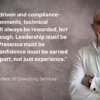
Thanksgiving is quickly approaching, a holiday whose origin was based upon giving thanks, expressing gratitude and sharing with others. This is often the time of year that we are reminded to be thankful and express gratitude. However, I would recommend that expressing should not just be limited to the third Thursday of November but we embrace doing so 365 days a year for a couple of reasons:
Improved Health, Well-Being & Productivity
Expressing gratitude makes us feel better. When we give thanks or express gratitude we increase the neurotransmitter dopamine – our brain’s own “feel good” chemical. Dopamine increases our energy and turns on our brain’s learning centers and allows to us feel more motivated and content. This boost of energy helps us tackle our goals, daily work and makes us more productive, which in turn increases our motivation and supports a feel-good mental state.
Many companies are tapping into this and encouraging their employees to make efforts to support gratitude as well as create an environment where positivity and gratitude are part of the corporate culture. We know from research that you can use gratitude as a way to retrain your brain and boost effectiveness and happiness. In research done by Shawn Anchor and Training Magazine (Feb 2014), he had 400 professionals commit to expressing three gratitudes a day and take other positive measures. After doing so for two weeks their energy levels increased by 12% and their stress decreased by 20%, which positively contributed to meeting their goals and having better performance.
Often I have clients that hit a time where everything seems to be going wrong: work is too stressful, their boss/clients/colleagues are difficult, home life is chaotic, bills are looming, the commute is too long, they have no time for themselves, and the list goes on. I am not suggesting that we shouldn’t vent. There are times that life is difficult, and many things can hit at once, creating a perfect storm of stress and unhappiness. However, there are options and ways to help combat this stress. Making gratitude a habit is one constructive effort to help increase your happiness and boost your energy and productivity.
Simple Gratitude Exercise: What Went Well?
“When we take time to notice the things that go right—it means we’re getting a lot of little rewards throughout the day.“
– Marty Seligman
An exercise that I often recommend to clients is Dr. Martin “Marty” Seligman’s, “Three Blessings or What Went Well?” Marty, a former President of the American Psychological Association, is known as the father of Positive Psychology movement and as an author of many wonderful books on the subject, Learned Optimism, Authentic Happiness and Flourish.
The exercise helps you focus your attention as you end your day, on three things that went well and why they went well. These three don’t have to be earth shattering: they can be as small as a beautiful sunset that you saw. This exercise re-educates your attention toward the positive and helps us stay connected to the present and the good around us.
What to do:
Each evening or at the end of your day write down three things that went really well today. These things can be small and ordinary in importance. Think about why this good thing happened. You can modify this by including family members and having this as a sharing exercise around the dinner table or before bedtime.
I encourage you to try this and see what positive effects using gratitude has on your happiness and productivity. If you are interested in learning more about the subject and how you can improve your health, well-being, productivity and goals please contact Michèle Barnett Berg at michele.berg@mcgpartners.com
 MCG Partners wishes you and yours a very Happy Thanksgiving!
MCG Partners wishes you and yours a very Happy Thanksgiving!
About the Author: Michèle Barnett Berg
About MCG Partners
MCG Partners a woman-owned, Greater Boston-based consultancy specializing in executive coaching, leadership development, talent management, and organizational development solutions. We help businesses optimize success through the entire management life-cycle. MCG Partners is also a Predictive Index® (PI®) certified partner.
To learn more about MCG Partners’ services or The Predictive Index®, contact John Griffith at john.griffith@mcgpartners.com or visit mcgpartners.com.







